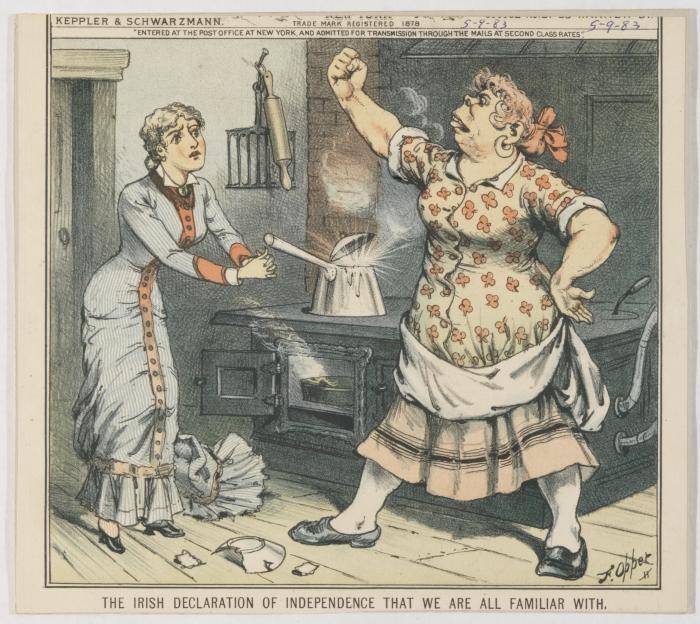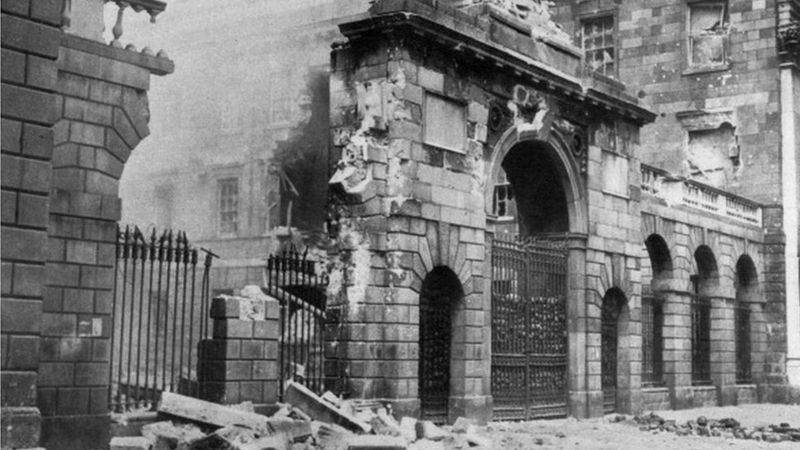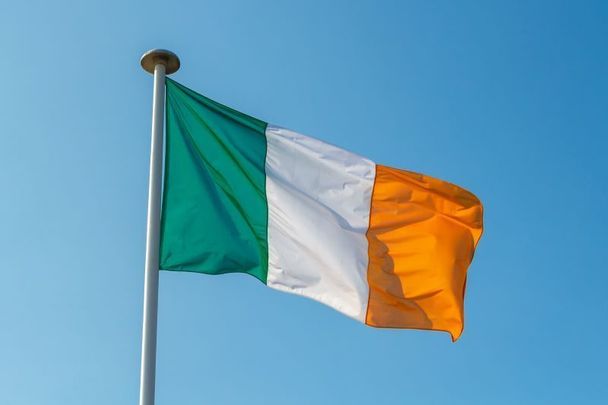Ireland's History: The Creation of a Shared National Identity
Major Historical Events in Ireland
Timeline of Ireland's History
"A Chronology of Irish History"
“The Potato Blight”
During the mid-1840s, Ireland experienced a national “potato famine” that decimated its economy and society, which exacerbated tensions between Ireland and Britain (Mokyr, 2021). Clare Kilbane, author of “The Irish Potato Famine,” argued that “tenant farmers” experienced social stagnation because of laws (e.g. the “Penal Laws”) that limited upward mobility and promoted discrimination from “Protestant merchants and landowners” (Kilbane, 2020, p.6). Because of this social stagnation, “tenant farmers” relied on “potatoes” as inexpensive and “easy to grow crops” (Mokyr, 2021; Kilbane, 2020, pp.6-7). However, this reliance limited the “genetic variety” of these crops, which allowed “blight” to destroy the Irish “potato” yield and alter their society (Mokyr, 2021). Dean M. Braa, author of “The Great Potato Famine and the Transformation of Irish Peasant Society,” reinforced this notion when she asserted that Britain attempted to mitigate the famine’s effects through “public works and the purchase of American corn…after considerable resistance in Parliament” (Braa, 1997, p.211). This belief that Ireland should bear responsibility for relief efforts stoked the flames of growing Irish “anti-British sentiment,” which caused increased Irish patriotism and migration to the United States (Kilbane, 2020, pp. 11-14). One question remains: how the “famine” further deteriorated fragile Irish-British relations (Kilbane, 2020, p.14).
/Ridpaths_history_of_the_world_-_being_an_account_of_the_principal_events_in_the_career_of_the_human_race_from_the_beginnings_of_civilization_to_the_present_time_comprising_the_development_of_social_14749361956-0dcb6c46ffb64d03ac4926a5312cf295.jpg) |
| Ireland's Potato Famine |
“Irish War of Independence”
After World War I, English-Irish relations disintegrated because Britain refused to recognize Ireland’s calls for independence, which fostered “anti-British” sentiment (Kilbane, 2020, p.14; Kay, 2022). Christopher L. Pastore, author of “How the Irish Won their Freedom,” claimed that Ireland revolutionaries unsuccessfully rebelled against the British during “Easter Rising in 1916” (Pastore, 2019). This rebellion framed English Irish relations as a conflict between democracy and colonialism (Pastore, 2019). Because of this conflict, Ireland embraced Wilsonian principles of “self-determination” and “declared independence” in January of 1919 (Pastore, 2019). This declaration of independence led to a three-year war known as the “Irish War of Independence,” which caused Britain to “split Ireland into two self-governing areas” (Boland, 2022). Frederick Henry Boland, author of “Ireland,” reiterated this notion when he stated that “the Irish Free State [was] established under the terms of the Anglo-Irish Treaty with the same constitutional status as Canada” (Boland, 2022). However, the factions of the “Irish Republican Army” opposed this “treaty” which created a civil war that did not end until 1922 (Pastore, 2019). The “Irish War of Independence” became an important milestone toward a shared national Irish identity, separate from Britain (Boland, 2022).
 |
| America's Viewpoint on Ireland's Independence |
“Irish Civil War”
During the 1920s, Ireland experienced a “civil war” that threatened the independence of the new nation, which demonstrated tensions between the two factions of the “Irish Republican Army” (Boland, 2022). Luke Sproule, author of “Ireland 1922: The New Irish State Descends into Civil War,” asserted that two “IRA” factions disagreed over parts of the “Anglo-Irish Treaty,” which included taking “an oath to the King,” and “the new state’s place within the empire” (Boland, 2022; Sproule, 2022). This disagreement created two separate groups, led by Eamon de Valera and Michael Collins (Pastore, 2019). Because of this separation, De Valera’s supporters did not support the “treaty” while Collins’ supporters did (Pastore, 2019). Pastore reinforced this notion when she argued that “[Collins’] provisional government prevailed and formed the Irish Free State in December 1922” (Pastore, 2019). This “provisional government” demonstrated its legitimacy and authority when they killed and “imprisoned” those who opposed the treaty (Boland, 2022; Pastore, 2019). One question remains: how the “Irish Civil War” spurred Ireland’s attempt to create a unified national identity (Pastore, 2019)?
 |
| Irish Government Buildings Bombed During the Irish Civil War |
Ireland's Great Hunger and the Irish Diaspora Documentary
Rebecca Abbott’s documentary “Ireland's Great
Hunger and the Irish Diaspora,” articulates the causes, effects, and
implications of the Irish “Potato Famine” (Abbott, 2020). In the beginning of
the documentary, the narrator, Gabriel Byrne, reads a letter from James Morris
to his son, Michael, who stated that “the present state of this country is most
alarming [and] hundreds are immigrating” (Abbott, 2020). This letter
demonstrated the severity of the “Potato Famine,” and argued that many Irish
citizens escaped by immigrating to the United States or Australia (Abbott,
2020). Because of this mass immigration, some Irish citizens felt a sense of
loss because of “the awful absence moping through the land” (Abbott, 2020).
Abbott reiterated this sense of “loss” when she argued that the “Potato Famine”
began when Britain colonized Ireland in 1801 (Abbott, 2020). She suggested that
when Britain controlled Ireland, they instituted a system where “Irish
Catholics” labored for “Protestant” landlords as “tenant farmers” (Abbott, 2020;
Kilbane, 2020, p.6). This system caused widespread discrimination against
“Irish Catholics” because the British viewed them as inferior (Abbott, 2020). One
question remains: has Ireland fully recovered from the effects of British
colonization (Abbott, 2020)?
 |
| Ireland's Flag |
Comments
Post a Comment